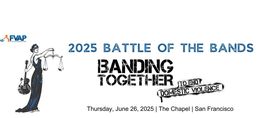Tue October 8, 2019
Jacob Ward at The Interval: The Loop: Decision Technology and How to Resist It
SEE EVENT DETAILS
Check-in begins 6:30pm; talk will start 7:30pm at The Interval
Jacob Ward joins us to explore how AI is pushing us into predictable patterns and how we can resist it.
The Loop: Decision Technology and How to Resist It
Jacob Ward (CASBS at Stanford)
If we use AI to write our favorite music for us, will we lose the ability to write music ourselves? If an AI coach keeps divorced parents from arguing by text, can they get along without it? If the only novels and screenplays that get a green light are the ones that AI believes match up with past hits, will we wind up reading and watching the same thing over and over?
In this conversation, NBC’s Jacob Ward, will describe the loop: the endless feedback cycle of pattern-recognition that threatens to collapse the complexity of human behavior into a predictable set of patterns across politics, entertainment, relationships, and art itself. Why is the loop so powerful? Why do companies keep empowering it? And what can we, as private citizens, do to resist its pull?
This event is co-presented by the Center for Advanced Study in the Behavioral Sciences (CASBS), where our speaker is currently a fellow.
Long Now members can watch a free livestream of this event
Jacob Ward is technology correspondent for NBC News, where he reports on-air for Nightly News with Lester Holt, MSNBC, and The TODAY Show. The former editor-in-chief of Popular Science magazine, Ward was Al Jazeera’s science and technology correspondent from 02013 to 02018, and has hosted investigative documentaries for Discovery, National Geographic, and PBS. As a writer, Ward has contributed to The New Yorker, The New York Times Magazine, Wired, and many other publications. His ten-episode Audible podcast, Complicated, discusses humanity’s most difficult problems, and he’s the host of an upcoming four-hour public television series, “Hacking Your Mind,” about human decision making and irrationality.
Ward is a 02018-19 Berggruen Fellow at Stanford University’s Center for Advanced Studies in the Behavioral Sciences, where he’s writing "The Loop: Decision Technology and How to Resist It", due for publication by Hachette Book Group in 02020. The book explores how artificial intelligence and other decision-shaping technologies will amplify good and bad human instincts.
More about CASBS at Stanford:Since 01954 the Center for Advanced Study in the Behavioral Sciences (CASBS) has been a preeminent national and international locus for cutting-edge, interdisciplinary, and transformative thinking and research on some of the most important challenges and issues. Its aim is discovery in the service of advancing social science methods, theories, and topics that address and answer socially significant questions. At the heart of the CASBS enterprise is its residential fellowship program, which attracts the finest minds from psychology, sociology, economics, political science, anthropology, history, philosophy, linguistics, and related disciplines.
Long Now members hear about Interval events first: become a member today.
You can watch videos of past Interval talks.
show less
Jacob Ward joins us to explore how AI is pushing us into predictable patterns and how we can resist it.
The Loop: Decision Technology and How to Resist It
Jacob Ward (CASBS at Stanford)
If we use AI to write our favorite music for us, will we lose the ability to write music ourselves? If an AI coach keeps divorced parents from arguing by text, can they get along without it? If the only novels and screenplays that get a green light are the ones that AI believes match up with past hits, will we wind up reading and watching the same thing over and over?
In this conversation, NBC’s Jacob Ward, will describe the loop: the endless feedback cycle of pattern-recognition that threatens to collapse the complexity of human behavior into a predictable set of patterns across politics, entertainment, relationships, and art itself. Why is the loop so powerful? Why do companies keep empowering it? And what can we, as private citizens, do to resist its pull?
This event is co-presented by the Center for Advanced Study in the Behavioral Sciences (CASBS), where our speaker is currently a fellow.
Long Now members can watch a free livestream of this event
Jacob Ward is technology correspondent for NBC News, where he reports on-air for Nightly News with Lester Holt, MSNBC, and The TODAY Show. The former editor-in-chief of Popular Science magazine, Ward was Al Jazeera’s science and technology correspondent from 02013 to 02018, and has hosted investigative documentaries for Discovery, National Geographic, and PBS. As a writer, Ward has contributed to The New Yorker, The New York Times Magazine, Wired, and many other publications. His ten-episode Audible podcast, Complicated, discusses humanity’s most difficult problems, and he’s the host of an upcoming four-hour public television series, “Hacking Your Mind,” about human decision making and irrationality.
Ward is a 02018-19 Berggruen Fellow at Stanford University’s Center for Advanced Studies in the Behavioral Sciences, where he’s writing "The Loop: Decision Technology and How to Resist It", due for publication by Hachette Book Group in 02020. The book explores how artificial intelligence and other decision-shaping technologies will amplify good and bad human instincts.
More about CASBS at Stanford:Since 01954 the Center for Advanced Study in the Behavioral Sciences (CASBS) has been a preeminent national and international locus for cutting-edge, interdisciplinary, and transformative thinking and research on some of the most important challenges and issues. Its aim is discovery in the service of advancing social science methods, theories, and topics that address and answer socially significant questions. At the heart of the CASBS enterprise is its residential fellowship program, which attracts the finest minds from psychology, sociology, economics, political science, anthropology, history, philosophy, linguistics, and related disciplines.
Long Now members hear about Interval events first: become a member today.
You can watch videos of past Interval talks.
Check-in begins 6:30pm; talk will start 7:30pm at The Interval
Jacob Ward joins us to explore how AI is pushing us into predictable patterns and how we can resist it.
The Loop: Decision Technology and How to Resist It
Jacob Ward (CASBS at Stanford)
If we use AI to write our favorite music for us, will we lose the ability to write music ourselves? If an AI coach keeps divorced parents from arguing by text, can they get along without it? If the only novels and screenplays that get a green light are the ones that AI believes match up with past hits, will we wind up reading and watching the same thing over and over?
In this conversation, NBC’s Jacob Ward, will describe the loop: the endless feedback cycle of pattern-recognition that threatens to collapse the complexity of human behavior into a predictable set of patterns across politics, entertainment, relationships, and art itself. Why is the loop so powerful? Why do companies keep empowering it? And what can we, as private citizens, do to resist its pull?
This event is co-presented by the Center for Advanced Study in the Behavioral Sciences (CASBS), where our speaker is currently a fellow.
Long Now members can watch a free livestream of this event
Jacob Ward is technology correspondent for NBC News, where he reports on-air for Nightly News with Lester Holt, MSNBC, and The TODAY Show. The former editor-in-chief of Popular Science magazine, Ward was Al Jazeera’s science and technology correspondent from 02013 to 02018, and has hosted investigative documentaries for Discovery, National Geographic, and PBS. As a writer, Ward has contributed to The New Yorker, The New York Times Magazine, Wired, and many other publications. His ten-episode Audible podcast, Complicated, discusses humanity’s most difficult problems, and he’s the host of an upcoming four-hour public television series, “Hacking Your Mind,” about human decision making and irrationality.
Ward is a 02018-19 Berggruen Fellow at Stanford University’s Center for Advanced Studies in the Behavioral Sciences, where he’s writing "The Loop: Decision Technology and How to Resist It", due for publication by Hachette Book Group in 02020. The book explores how artificial intelligence and other decision-shaping technologies will amplify good and bad human instincts.
More about CASBS at Stanford:Since 01954 the Center for Advanced Study in the Behavioral Sciences (CASBS) has been a preeminent national and international locus for cutting-edge, interdisciplinary, and transformative thinking and research on some of the most important challenges and issues. Its aim is discovery in the service of advancing social science methods, theories, and topics that address and answer socially significant questions. At the heart of the CASBS enterprise is its residential fellowship program, which attracts the finest minds from psychology, sociology, economics, political science, anthropology, history, philosophy, linguistics, and related disciplines.
Long Now members hear about Interval events first: become a member today.
You can watch videos of past Interval talks.
read more
Jacob Ward joins us to explore how AI is pushing us into predictable patterns and how we can resist it.
The Loop: Decision Technology and How to Resist It
Jacob Ward (CASBS at Stanford)
If we use AI to write our favorite music for us, will we lose the ability to write music ourselves? If an AI coach keeps divorced parents from arguing by text, can they get along without it? If the only novels and screenplays that get a green light are the ones that AI believes match up with past hits, will we wind up reading and watching the same thing over and over?
In this conversation, NBC’s Jacob Ward, will describe the loop: the endless feedback cycle of pattern-recognition that threatens to collapse the complexity of human behavior into a predictable set of patterns across politics, entertainment, relationships, and art itself. Why is the loop so powerful? Why do companies keep empowering it? And what can we, as private citizens, do to resist its pull?
This event is co-presented by the Center for Advanced Study in the Behavioral Sciences (CASBS), where our speaker is currently a fellow.
Long Now members can watch a free livestream of this event
Jacob Ward is technology correspondent for NBC News, where he reports on-air for Nightly News with Lester Holt, MSNBC, and The TODAY Show. The former editor-in-chief of Popular Science magazine, Ward was Al Jazeera’s science and technology correspondent from 02013 to 02018, and has hosted investigative documentaries for Discovery, National Geographic, and PBS. As a writer, Ward has contributed to The New Yorker, The New York Times Magazine, Wired, and many other publications. His ten-episode Audible podcast, Complicated, discusses humanity’s most difficult problems, and he’s the host of an upcoming four-hour public television series, “Hacking Your Mind,” about human decision making and irrationality.
Ward is a 02018-19 Berggruen Fellow at Stanford University’s Center for Advanced Studies in the Behavioral Sciences, where he’s writing "The Loop: Decision Technology and How to Resist It", due for publication by Hachette Book Group in 02020. The book explores how artificial intelligence and other decision-shaping technologies will amplify good and bad human instincts.
More about CASBS at Stanford:Since 01954 the Center for Advanced Study in the Behavioral Sciences (CASBS) has been a preeminent national and international locus for cutting-edge, interdisciplinary, and transformative thinking and research on some of the most important challenges and issues. Its aim is discovery in the service of advancing social science methods, theories, and topics that address and answer socially significant questions. At the heart of the CASBS enterprise is its residential fellowship program, which attracts the finest minds from psychology, sociology, economics, political science, anthropology, history, philosophy, linguistics, and related disciplines.
Long Now members hear about Interval events first: become a member today.
You can watch videos of past Interval talks.
show less
Date/Times:
2 Marina Blvd. , San Francisco, CA 94123
The Best Events
Every Week in Your Inbox
From Our Sponsors
UPCOMING EVENTS
Great suggestion! We'll be in touch.
Event reviewed successfully.









